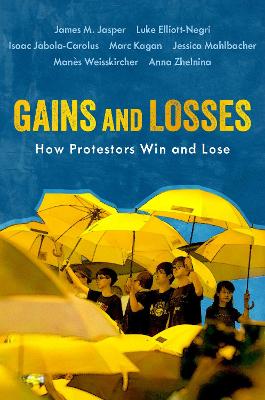Oxford Studies in Culture and Politics
1 total work
Presents cutting edge theory about the consequences of social movements and protest while asking what kind of trade-offs protest movements face in trying to change the world around them.
Many scholars have tried to figure out why some social movements have an impact and others do not. By looking inside movements at their component parts and recurrent strategic interactions, the authors of Gains and Losses show that movements usually produce a variety of effects, including recurring packages of gains and losses. They ask what kinds of trade-offs and dilemmas these packages reflect by looking at six empirical cases from around the world: Seattle's conflict over the $15
an hour minimum wage; the establishment of participatory budgeting in New York City; a democratic insurgency inside New York City's Transport Workers' Union; a communist party's struggle to gain votes and also protect citizen housing in Graz, Austria; the internal movement tensions that led to Hong Kong's
umbrella occupation; and Russia's electoral reform movement embodied in Alexei Navalny. They not only examine the diverse players in these cases involved in politics and protest, but also the many strategic arenas in which they maneuver. While each of these movements made some remarkable gains, this book shows how many also suffered losses, especially in the longer run.
Many scholars have tried to figure out why some social movements have an impact and others do not. By looking inside movements at their component parts and recurrent strategic interactions, the authors of Gains and Losses show that movements usually produce a variety of effects, including recurring packages of gains and losses. They ask what kinds of trade-offs and dilemmas these packages reflect by looking at six empirical cases from around the world: Seattle's conflict over the $15
an hour minimum wage; the establishment of participatory budgeting in New York City; a democratic insurgency inside New York City's Transport Workers' Union; a communist party's struggle to gain votes and also protect citizen housing in Graz, Austria; the internal movement tensions that led to Hong Kong's
umbrella occupation; and Russia's electoral reform movement embodied in Alexei Navalny. They not only examine the diverse players in these cases involved in politics and protest, but also the many strategic arenas in which they maneuver. While each of these movements made some remarkable gains, this book shows how many also suffered losses, especially in the longer run.
